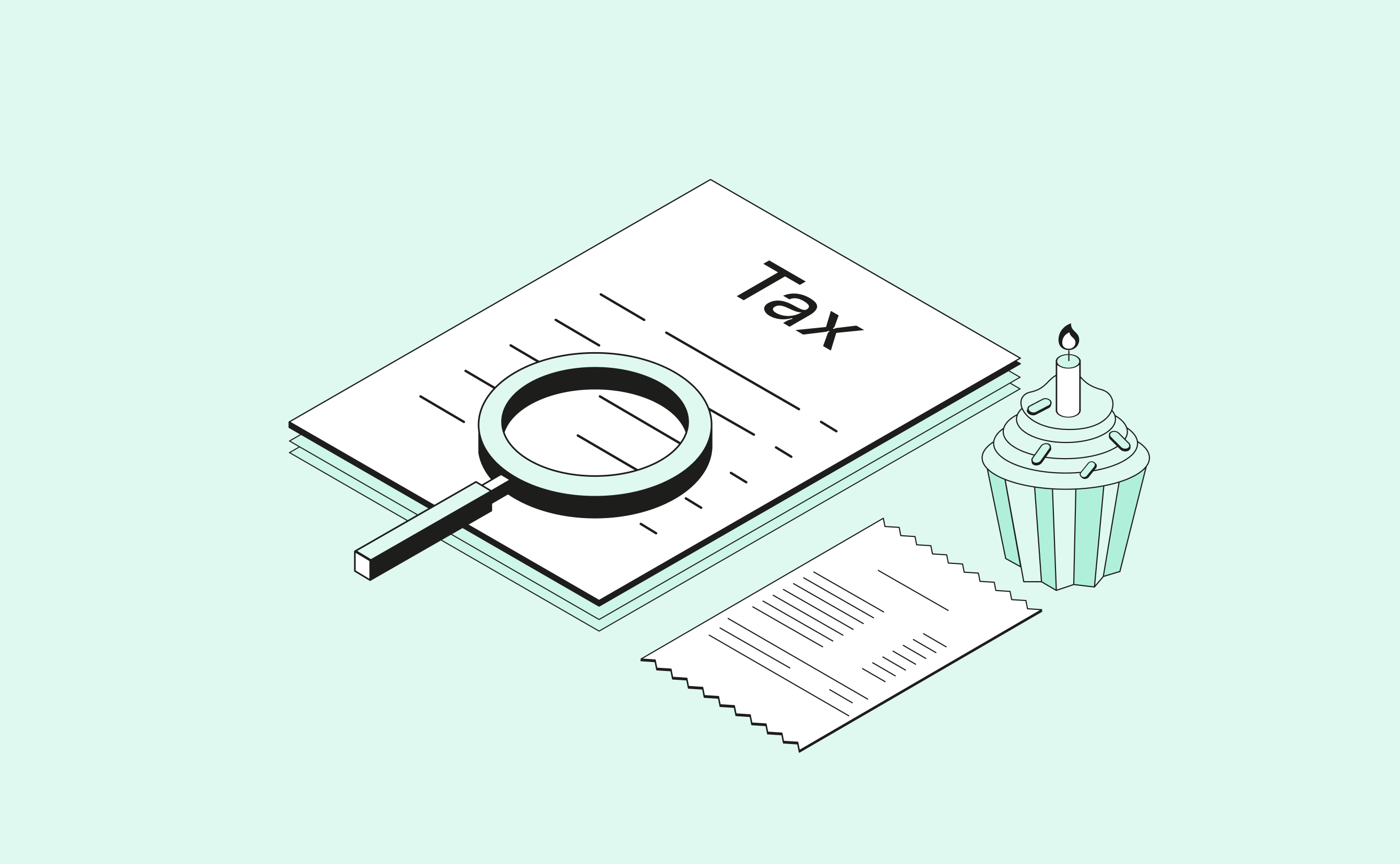There are many options in Germany for the ones who want to work for themselves. Sifting through the information on the many different types can cause a bit of confusion and a bureaucratic headache (a common affliction in Germany), but the different possibilities actually make it easier for hopeful entrepreneurs.
How to become self-employed in Germany

What’s the difference between being a freelancer and a sole trader?
In Germany, there are different terminologies and conditions related to self-employment. In this article, we will use ‘self-employed’ as an umbrella term for an individual who runs a one-person business. The official, legal term for this in German is Einzelunternehmer. There are two main types of Einzelunternehmer: freelancer (Freiberufler) and a sole trader (Gewerbetreibende).
Freelancers
Overall, freelancers in Germany have more freedom than sole traders. As a freelancer, you will not need to belong to a trade association or have a registered place of business such as an office. You will not always need particular professional credentials in order to gain clients, because freelance workers perform a different nature of activity to sole traders. Freelancers generally do not have employees and work on a contract basis with their clients, usually juggling multiple clients at one time.
- Law and tax professionals (lawyers, accountants)
- Writers and artists (journalists, photographers, musicians)
- Medical professionals (doctors, dentists, therapists)
- Educators (teachers)
- Engineers and architects
Sole traders
Becoming a sole trader in Germany requires a few extra steps. While freelancers will only have to register at the tax office, self-employed tradespeople will need to find the appropriate trade association to which to belong and register with them. Doing this will insure you and hold you accountable for the work you do so that clients can contact the relevant association if they need. Belonging to a trade association also helps when a certain legislation is affecting a certain group of tradespeople. It is much easier to mobilise and make your case for change when belonging to a trade association.
- Craft (Jewellery, clothing)
- Industrial (transport, agriculture, construction)
- Commercial (shopping and retail services)
- Hospitality (Hotels, restaurants)
Self-employment options in Germany
When registering as either a freelancer or a sole trader in Germany, you will be faced with a few options. It’s best to sort these out before going through with the registration process. Below we’ll lay out the required registration steps and relevant associations so you can make the decisions before contacting them.
Registering as a freelancer
Your first step towards being registered to work as a freelancer is to make sure you have the right work permit. If you are living in Germany and your home country is outside the EU, your chosen visa will impose restrictions and requirements on you as a freelancer. Consult this government page for information on visas.
Once you have the proper working permit, you will need to complete a questionnaire called in German the ‘Fragenbogen zur steuerliche Erfassung’. You can complete this questionnaire for free via Qonto's simplified online form, which comes with step-by-step explanations, all in plain English. Alternatively, you can complete the form in German via the online tax office, ELSTER, or download the form and send a paper copy.
Registering as a sole trader
In addition to the appropriate visa and your Tax ID, registering as a sole trader requires you to register with the relevant trade office (Gewerbeamt). If you’re not sure which trade authority your business belongs to, consult colleagues or friends in the same industry or search online for forums and social media pages dedicated to your line of work.
It will cost you between €20 and €60 to obtain and complete the application. Submit it via mail to your local Finanzamt and wait for them to contact you. They will inform you that your trade has been registered and then you can get to work!
"Kleinunternehmerregelung": VAT exemption for small businesses
Health insurance in Germany for the self-employed
Everyone living legally in Germany is required to have health insurance. Within that requirement is the choice between public and private health insurance. For employed workers, it’s usually simpler and cheaper to go with public health insurance. Being a freelancer or sole trader complicates things a little bit.
Public health insurance for the self-employed
While employees in Germany will have their health insurance paid for in deductions from their monthly salary, self-employed workers will pay for it separately. The fee will depend on your annual income.
Private health insurance for the self-employed
Due to its high fees, public health insurance is less popular among freelance and self-employed workers. On a private plan, you are much more likely to be paying a lower fixed fee. This is of course depending on what kind of private insurance plan you’ll need.
- Family coverage (each child will need to be paid for individually)
- Special treatments (alternative medicines)
- Long term illnesses or extraneous health requirements
- Parents in care homes
If these things apply to you as a freelancer, make sure you calculate how much it will end up costing you per month. Public health insurance tends to cover a lot more under its income-scaled premiums, so it could end up being cheaper depending on your situation.
Taxes in Germany for the self-employed
Earning for yourself invites a great deal more freedom in your working life, but you’ll unfortunately be caged in by a more complicated tax return. This is because you’re sorting out expenses, health insurance payments, and a less stable income than an employed worker has.
1. The tax system
Firstly, it’s important to understand how Germany taxes self-employed workers. Depending on your income, you’ll pay 14% to 45% of your earnings. Obviously, the higher you earn will put you closer to the 45% bracket.
- Up to €9,744 per year: exempt from income tax
- €9,745 – €57,918 per year: 14% to 42%
- €57,919 – €274,612 per year: 42%
- Over €274,613 per year: 45%
2. VAT
Paying VAT further complicates the tax situation for freelancers and sole traders. Called Umsatzsteuer in German, anyone offering goods or services is required to charge VAT on top of their fees.
3. Tax options
Since doing your taxes is much more complicated as a self-employed worker, you ought to familiarise yourself with the many options out there to make tax life easier. This is especially important if your German speaking hasn’t yet mastered the complications of tax and accounting jargon.
| Resource type | Cost | Examples | |||
|---|---|---|---|---|---|
| English speaking accountants | High | US Embassy Tax advisor list DATEV Kammersuchservicetax-advisor.co | |||
| English speaking tax services | Free to low | SortedLex Office | |||
| Online resources | Free | FAB – Free Advice Berlin (Facebook page) |
Scheinselbstständigkeit
Banking in Germany for the self-employed
You should never neglect your choice of banking or financial service when getting set up for self-employment. What your financial service offers can make things simpler and more efficient for you as a business owner, and ought to be more flexible than traditional banking options designed for more general use.
- Access to bookkeeping software and account integration
- Team cards for employee expenses with adjustable spending limits
- Simple, clean interface
Simplify your self-employment journey with the right business banking account
Invoicing in Germany for the self-employed
Invoicing requirements differ depending on whether you set up as a sole trader or a freelancer. Wherever you are however, invoicing will be a huge part of your life with a career in self-employment.
Mandatory for all invoices
- Full name, address, invoicing party, service recipient
- Tax number or VAT Identification
- Date of invoice
- Invoice number
- Description of services provided or goods delivered
- Invoice amount, VAT amount, tax exemption (if applicable)
Small invoices (up to €250)
Small invoices or Kleinbetragsrechnungen need only contain a portion of the mandatory information listed above:
- Name and address of invoicing party
- Invoice date
- Description of services provided or goods delivered
- Invoice amount, VAT amount, tax exemption (if applicable)
Hiring in Germany for the self-employed
Familiarising yourself with the laws on hiring in Germany is crucial when pursuing self-employment. Germany has quite strict labour laws in place to protect its workers, and failing to adhere to these can have serious ramifications for your future as a sole trader or freelancer.
Work contract
The work contract (Arbeitsvertrag) must be made by you as the employer. This is where you dictate the conditions of employment for the employee, but make sure you familiarise yourself with clause 305 ff. BGB of the German civil code. This law protects the employee by laying out the legal conditions of each work contract. If your contract does not live up to these conditions, it can be rendered invalid.
Redundancy/cancellation agreement
You can request the Aufhebungsvertrag from your employee which will restrict them from filing for an employment lawsuit unless under extreme circumstances. When filling this out, be sure to offer financial compensation if the employee’s contract is terminated, otherwise they are not likely to sign on and work for you.
Fixed term and part-time contract law
Employers in Germany must lay out the conditions of the contract term when officially hiring employees. These can take different forms:
- Two years maximum or four fixed-term contracts
- Unlimited contract
If your employee continues working after their fixed term contract has ended and you do nothing, this contract will automatically turn into an unlimited contract. Be careful not to let this happen, as your employee then has grounds to sue you and secure a permanent contract, which you may not want from them.
Notice of cancellation
Terminating your employee in Germany requires a kündigung or notice of cancellation. In this situation, you are required to prove to the employee that they have received notice with a written and signed document. The employee will have five days to inquire about the legitimacy of the notice, and the notice must also include the reason for termination of employment.
Maternity and parental leave
Maternity and parental leave will restrict you as the employer from giving notice of termination to your employee. Certain work tasks are also restricted and the employee is not allowed to work six weeks before giving birth or eight weeks after.
Self-employment in Germany is well-protected and intricately arranged, but the level of information can be quite baffling. The key thing to do is think hard about what kind of self-employment situation will best suit you and your venture (freelancer or sole trader) and read only the relevant information for you.
- Understand the difference between freelance and sole trader in Germany: how this affects your profession and registration requirements
- When choosing health insurance, consider carefully both your working and personal situation to decide between public and private
- Research Germany’s taxation rules for freelancers and the self-employed: how will you be taxed depending on your earnings and how much VAT will you have to charge
- Choose a business banking account that best suits your business
- Ensure each invoice you send has the mandatory information on it
- Learn about the hiring laws which protect employees in Germany so as not to run into serious trouble later





